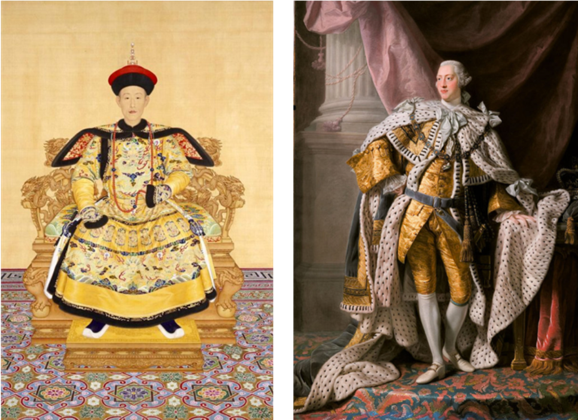

I was brought up with a very western-centric view of the world, and culture continues to frame things in that way. It is therefore intriguing to view the world from a completely different perspective. History can provide a very real way of doing that. One example of this is when the British Empire encountered the Chinese.
The British Empire, one of the largest in history, went through several phases. One critical phase was the American War of Independence when the colonists in North America broke away from the Empire in 1783. While it did stop British expansion in the west, it resulted in them focusing on the East. Eventually, it led to the British Raj in India and the next phase of the British Empire.
It also saw them have more contact with the Chinese. At the time, the British were allowed to trade in the Canton port (later Hong Kong), but they weren’t allowed a presence in mainland China. What many history books fail to mention is that though the British (along with possibly the French) were the largest European powers, they weren’t the largest in the world. In fact, the Chinese economy was almost seven times larger than the British economy. This becomes even more apparent in the ruling Chinese emperor Qinglong’s letter replying to King George III’s request for a presence in mainland China in 1793. Here are some of the excerpts:
“You, O King, live beyond the confines of many seas, nevertheless, impelled by your humble desire to partake of the benefits of our civilisation, you have dispatched a mission respectfully bearing your memorial…
…Swaying the wide world, I have but one aim in view, namely, to maintain a perfect governance and to fulfil the duties of the State: strange and costly objects do not interest me…As your Ambassador can see for himself, we possess all things. I set no value on objects strange or ingenious, and have no use for your country’s manufactures…
…It behoves you, O King, to respect my sentiments and to display even greater devotion and loyalty in future, so that, by perpetual submission to our Throne, you may secure peace and prosperity for your country hereafter.”
Fifty years later, the British did find something they could sell to the Chinese and gain leverage over them; the drug opium. Despite, the Chinese government declaring it illegal, the British used it to gain a profitable export market in China and later gain access to mainland China through fighting the two Opium Wars (in 1839 and 1856).
Thanks,
Bilal
Spring sale - Prime Membership only £3 for 3 months! Get trade ideas and macro insights now
Your subscription has been successfully canceled.
Discount Applied - Your subscription has now updated with Coupon and from next payment Discount will be applied.